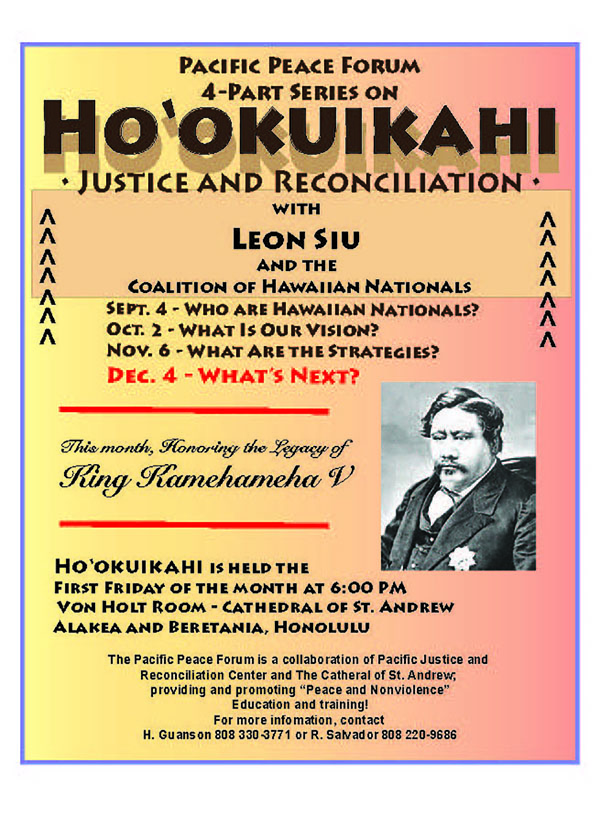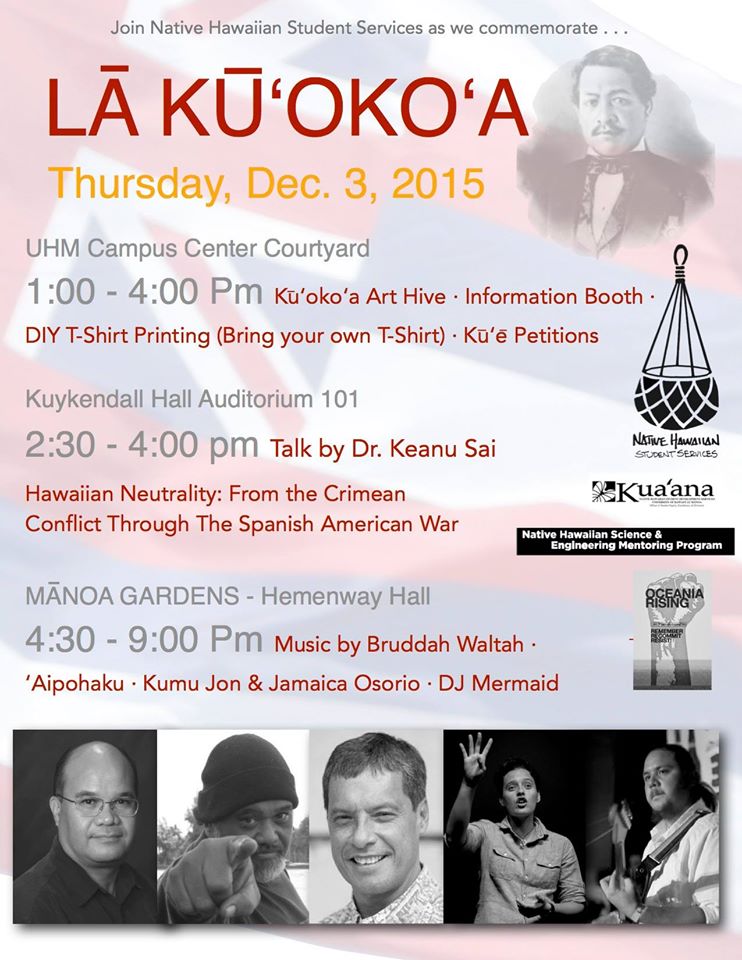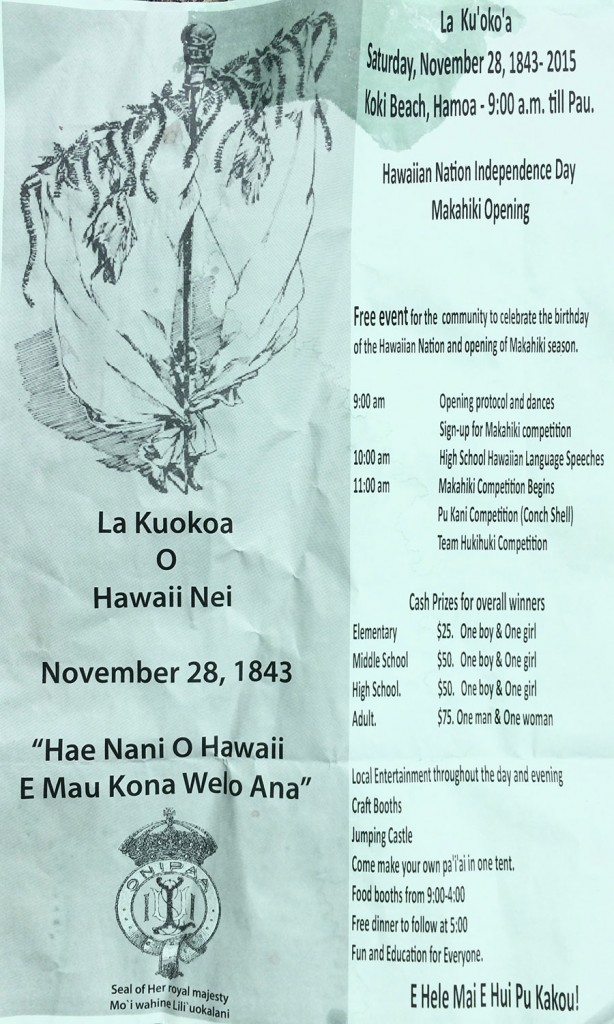Facing a potential court battle that could go on for years, Na‘i Aupuni announced this morning that it will cancel the Native Hawaiian election and proceed to a four-week convention in February.
All 196 Hawaiians who ran as candidates will be offered seats as delegates to the convention, or ‘aha, said Na‘i Aupuni President Kuhio Asam.
“Our goal has always been to create a path so that Hawaiians can gather and have a serious and much-needed discussion about self-governance,” Asam said at a downtown Honolulu press conference this morning.
“We anticipated that the path would have twists and turns and some significant obstacles, but we are committed to proceeding to the ‘aha where this long-overdue conversation can take place,” he said.
He said the board of the nonprofit Na‘i Aupuni — considering the delay it faced from a lawsuit that accused the election of being race-based — decided that the most effective route going forward would be to offer to convene all of the remaining delegate candidates and allow to organize and achieve Hawaiian self-governance.
Election-America, the contractor hired to run the election, has been told to stop taking ballots, to seal any ballots already received and to prevent anyone from counting the votes, he said.
Na‘i Aupuni attorney William Meheula said the ballots will never be counted, thus making the litigation brought by Grassroot Institute of Hawaii moot. He said the group will take steps to dismiss the lawsuit.
In addition, Asam said, Mediation Center of the Pacific has been hired to serve as facilitators to lead the initial “instruction week” and assist with organizing the delegates, who were informed of the group’s move this morning.
The confirmation deadline to participate in the convention is Dec. 22. An email will request that the candidates confirm whether they intend to accept the terms and attend the ‘aha in Kailua during the the month of February.
Asam said delegates will receive information during the first week regarding constitution building, federal Indian law, international law regarding de-occupation, decolonization, the rights of indigenous people, U.S. Constitution issues that relate to Native Hawaiian self-governance, the ceded lands claim, background on Hawaiian Home Lands, kingdom law and constitutions drafted by sovereignty groups.
And here’s the update from Na’i Aupuni that was emailed out to voters this morning:
Dear Voters,
Given that the counting of the votes may be delayed by the legal process for up to a few years, Na`i Aupuni has decided to terminate the election as of today and to offer all 196 candidates the opportunity to serve as `Aha delegates from February 1 to 26, at a meeting facility in Kailua, Oahu.
One of the main reasons behind this decision to seat all candidates is that they represent a broad-based spectrum of the Native Hawaiian community and Na`i Aupuni wants to seize this rare opportunity to organize Native Hawaiians and to propose a path to self-governance.
A Q&A that addresses many issues concerning this change of events as well as the terms that Na`i Aupuni is offering the candidates to serve as delegates are set forth on the Na`i Aupuni website, naiaupuni.org
Mahalo nui for supporting the Na`i Aupuni process and we encourage you to support the upcoming `Aha!
William Meheula
And here’s Na’i Aupuni’s news release (PDF)






